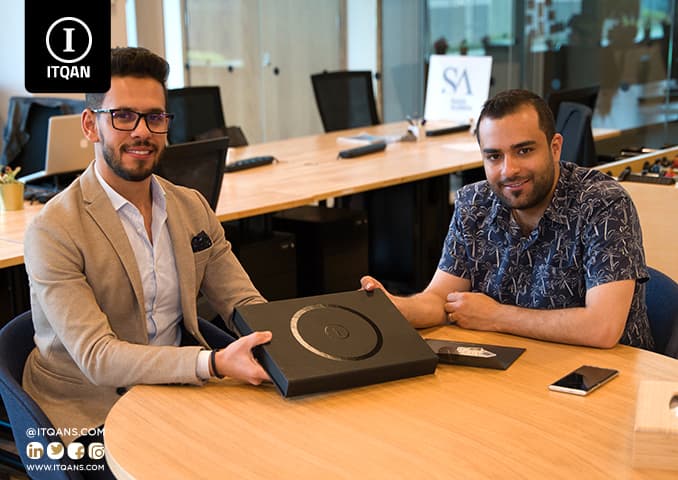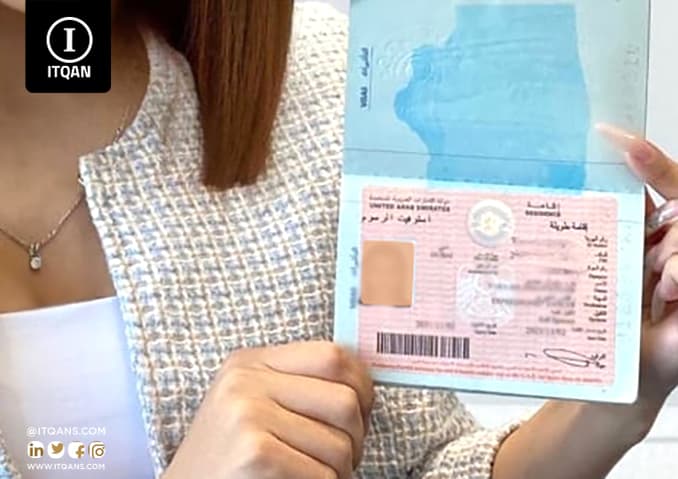In light of the rapid economic growth and evolving business environment in Dubai, the cost of setting up a company in the Dubai Free Zone is an ideal option for investors who want to establish their business efficiently and flexibly. Among these areas, Dubai Free Zone stands out as one of the most prominent destinations that attract small, medium and large companies alike.
Establishing a company in a Dubai Free Zone requires good preparation and a careful understanding of the costs associated with the process. The establishment process includes a set of basic costs that the investor must plan carefully, such as registration and licensing fees, the required capital, in addition to the costs of legal and accounting consultations that contribute to ensuring legal and tax compliance.
Furthermore, after the company is established, there are annual costs that the investor must be aware of and be prepared to bear, such as rental and office fees, general administrative costs, taxes and other fees that must be paid to maintain business continuity and legal compliance.
Relying on these factors, an investor can achieve sustainable success in building his business in the Dubai Free Zone , and benefit from the dynamic economic environment and vast opportunities offered by this distinguished destination in the Middle East.

The cost of establishing a company in the Dubai Free Zone
جدول المحتوى
ToggleThe cost of establishing a company in the Dubai Free Zone
Dubai Free Zone is one of the main destinations for businessmen looking to build their companies in an advanced and sophisticated investment environment. While offering a host of benefits such as tax breaks and government facilities, setting up a company in this region comes with specific costs that must be taken into consideration before getting down to business.
1. Government fees and licenses
One of the most prominent initial costs of establishing a company in a Dubai free zone is government fees and licensing fees. These fees vary based on the type of company and its activity, and are determined based on several factors, including the number of shareholders, the type of business activity, and the category to which the investor belongs.
2. Required capital
Some Al Hurriya areas in Dubai require a minimum capital to establish a company, and this depends on the type of company established. The required capital is an essential part of the conditions for incorporation and is determined based on the company classification and the requirements of local authorities.
3. Costs of legal and accounting consultations
It is important to use the professional services of expert legal advisors and accountants to assist the investor in preparing the necessary documents and ensuring legal and tax compliance. These costs include consultations in preparing agreements, registering the company, and preparing the necessary accounts and financial reports.
4. Annual operating costs
After establishing the company, the investor must be aware of the annual costs that include rental fees, labor costs, and general administrative costs such as electricity, water, and maintenance. Annual costs also include legal fees and local taxes charged by the company.
Establishing a company in a Dubai Free Zone comes with great opportunities and financial challenges that require preparation and good planning before starting. Despite the high initial costs, the dynamic economic environment and government facilities make Dubai an ideal home for business growth and expansion in the regional and global market.

Advantages of establishing a company in the Dubai Free Zone
Advantages of establishing a company in the Dubai Free Zone
Dubai Free Zone is an attractive destination for global investors seeking to build their businesses in an advanced and open investment environment. This region has a number of features that make it an ideal station for establishing and expanding companies, including the following benefits:
1. Tax and customs exemptions
One of the most prominent advantages provided by the Dubai Free Zone is tax and customs exemptions. These exemptions allow companies to achieve higher profits by reducing tax costs and customs duties, which enhances their competitiveness in the global market.
2. Flexible legislation and a favorable legal environment.
Investors in the Dubai Free Zone benefit from flexible legislation and a favorable legal environment. This legal structure helps facilitate corporate operations and provides the necessary legal protection to investors, which enhances confidence and achieves legal stability.
3. Easy access to regional and global markets
Thanks to its strategic location, Dubai Free Zone provides easy access to regional and global markets. Companies established in this region can benefit from a developed network of communications and transportation, facilitating export and import operations and expanding the scope of their business.
4. Advanced infrastructure and integrated services
The Dubai Free Zone includes an advanced and integrated infrastructure, including modern office facilities, storage areas, distribution centers, and advanced logistical services. This ideal infrastructure provides the necessary support for companies to achieve high efficiency and increase productivity.
5. Government support and effective administrative services
The Dubai Free Zone provides effective government support and distinguished administrative services, including facilities for issuing licenses and permits, and accelerating procedures for establishing companies, which reduces administrative costs and facilitates daily management operations.
In short, establishing a company in a Dubai Free Zone represents an ideal choice for investors thanks to the multiple investment advantages it offers, including tax and customs exemptions, flexible legislation, and easy access to regional and global markets. These advantages are a strong driver for attracting investors who want to expand their business and achieve growth and sustainability in a dynamic and diverse international market.
Areas of establishing a company in the Dubai Free Zone
Dubai Free Zone is considered an excellent investment destination for those wishing to establish their companies, thanks to the great economic diversification and advanced infrastructure that supports a wide range of industries and sectors. Here are some of the main areas in which companies can be established in the Dubai Free Zone:
1. Trade and distribution The
trade and distribution sector is one of the most important areas in which the Dubai Free Zone finds a distinguished base. Companies in this field can benefit from advanced warehousing and logistics infrastructure, as well as tax and customs exemptions that facilitate international trade.
2. Financial and banking services:
Thanks to its advanced financial policies and laws supporting the financial sector, Dubai Free Zone provides an ideal environment for financial and banking services companies. Companies here can operate in areas such as banking, insurance, and investments, while adhering to international standards.
3. Technology and Innovation
Dubai Free Zone promotes innovation and technology through its support of emerging companies and modern technology. Companies in the field of technology and innovation can benefit from modern facilities such as creative spaces and research and development centres.
4. Creative and media industries
Dubai Free Zone encourages creative and media industries, such as film production, advertising, and digital marketing. These industries provide significant opportunities for innovation and cross-border expansion.
5. Tourism and Hospitality
Thanks to its distinguished geographical location and impressive tourism infrastructure, Dubai Free Zone is a haven for companies in the tourism and hospitality sector. Businesses here can benefit from the growing demand for events, hotels and various tourism services.
In short, Dubai Free Zone offers vast investment opportunities in a variety of industries and sectors. Investors can exploit economic diversity and government benefits to establish successful and sustainable companies in this prominent investment destination in the Arab world and the Middle East.
Documents required to establish a company in the Dubai Free Zone
Establishing a company in a Dubai Free Zone requires adherence to precise legal and administrative procedures, in addition to submitting a number of necessary documents. Below is an overview of the documents required for investors wishing to establish their company in this prestigious investment destination:
1. Personal documents of the founders and shareholders
Personal documents must be submitted to all founders and shareholders of the company, including:
A copy of the passport or national ID.
A copy of the residence permit if the founder or shareholder is not an Emirati citizen.
A copy of the tax card (if available).
2. Legal documents of the company
Establishing a company requires preparing and submitting a number of legal documents. These documents include:
Memorandum of Association: A document that defines the company’s structure, the scope of its activities, and its goals.
Articles of Association: A document that regulates the internal details of the company’s work, such as the rights and duties of shareholders and company management.
Founders’ Resolutions: These resolutions are part of the necessary legal documents and specify the exact details of establishing the company, distributing shares, and other basic management decisions.
3. Licenses and permits
The necessary licenses and permits must be obtained to practice commercial activity in the Dubai Free Zone, and these licenses include:
Company license: An official document issued by the Freedom Zone authorities that allows the company to carry out its activities.
Activity permits: permits specific to the type of business activity that the company intends to carry out, such as industry, trade, financial services, etc.
4. Additional certificates and permits
There may be additional certificates required depending on the type of company and its activity, such as:
Certificates of experience or professional competence in the case of specialized activities such as medicine, engineering, law, etc.
Health or environmental certificates in the case of companies operating in specific sectors such as food or chemical industries.
5. Financial and accounting statements
It may be necessary to provide financial and accounting data, such as:
Economic feasibility study: determines the expected financial investments and expected returns in the short and long term.
Financial Reports: Includes current financial data and financial projections for the coming years.
Establishing a company in a Dubai Free Zone requires compliance with a comprehensive set of legal and administrative papers and documents. With these documents in place, investors can build a successful and sustainable business in this distinguished economic destination in the Middle East.
Steps to establish a company in the Dubai Free Zone
Establishing a company in a Dubai Free Zone requires following specific steps and complying with applicable legal and administrative procedures. In this topic, we will review the incorporation steps that must be followed to establish a successful company in one of the freedom zones available in Dubai:
1. Choosing the company type
The first important step in the company establishment process is choosing the appropriate company type according to your business goals and legal requirements. Options available in Dubai Free Zone can include sole proprietorships, limited liability companies, and public or private joint stock companies.
2. Choosing a company name and registration:
An appropriate name must be chosen in accordance with local standards and laws related to registration in the Dubai Free Zone. You must ensure that the chosen name does not conflict with other company names in the registers, and that it complies with local laws.
3. Preparing legal documents
The legal documents that must be prepared include:
Memorandum of Association: defines the company’s structure, the scope of its activities, and the rights and duties of shareholders.
Articles of Association: It specifies the internal details of the company’s work, such as company management, distribution of profits, and shareholder rights.
4. Obtaining licenses and permits:
You must obtain the necessary licenses and permits to practice commercial activity in the Dubai Free Zone. These licenses include:
Company license issued by the Freedom Zone authorities.
Activity permits for the type of commercial activity that the company intends to carry out.
5. Opening a bank account:
The company must open a commercial bank account in one of the local or international banks approved in the Emirates. This step requires the submission of some documents such as the articles of incorporation and identity cards for shareholders and directors.
6. Residence visa for managers and employees
A residence visa must be obtained for the managers and employees who will work in the company. This step can be done in cooperation with authorized immigration agents in Dubai.
7. Securing the office and commercial space
The company must secure the office or commercial space required to conduct its business in the Dubai Free Zone, and can benefit from the offers and facilities provided by the zone to new investors.
Our company’s role in establishing a company in the Dubai Free Zone
Establishing a company in a Dubai Free Zone represents a smart investment step given the broad economic opportunities and appropriate legislative environment that the region provides. In cooperation with Itqan Company, investors can enjoy specialized guidance and advisory services that facilitate the process of establishing and managing the company efficiently.
By looking at the cost of establishing a company, it appears that Dubai Free Zone offers competitive establishment costs compared to other international markets, making it an ideal choice for new and expanding companies alike. Benefiting from tax and customs exemptions, in addition to advanced infrastructure and government support, contribute to creating an environment that encourages business and economic growth.
Certainly, investors who are serious about establishing their companies in the Dubai Free Zone should consider providing the necessary financial resources and adhering to the legal and administrative procedures. Itqan Company provides support and guidance to assist with every step of this process, ensuring its efficient and successful implementation.
In conclusion, it can be said that establishing a company in the Dubai Free Zone represents a fruitful opportunity for investors who want to exploit economic opportunities and build sustainable businesses in an ideal investment environment.
Frequently asked questions about the cost of establishing a company in the Dubai Free Zone
What types of companies can be established in the Dubai Free Zone?
You can establish a sole proprietorship, limited liability company (LLC) or joint stock company in the Dubai Free Zone.
What are the approximate costs of establishing a company?
Costs depend on the type of company and the legal and administrative requirements of the free zone. Costs are determined based on the services required such as licenses, visas and administrative services.
What annual fees must be paid?
Annual fees vary based on the type of company and its business activity. These fees typically include renewal fees and administrative services and may also include legal fees if applicable.
What are the basic steps to establish a company in Dubai Free Zone?
The steps include submitting the required documents, obtaining the necessary approvals, and registering the company in the free zone commercial registry. You must also open a company bank account and secure the necessary contracts.
What documents are necessary to establish a company?
Documents usually include a passport or identity card, the personal address of the founders, articles of incorporation, details about the proposed business activities and financial statements if necessary.

















